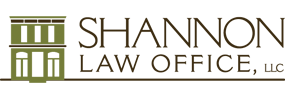Trusts: How Do I Ascertain the Ascertainable?
We draft revocable living trusts on a regular basis here at Shannon Law. The trust planning and development process normally involves three fairly lengthy meetings. We prefer to spend this much time on our estate planning projects because we feel that it is critical that clients have an ample opportunity to ask questions during the meetings and to make sure the final trust plan meets the needs of our clients.
We do tend to receive some questions on a regular basis during the meetings. One consistent question we receive when covering trusts concerns certain very common distribution language found in nearly every revocable living trust on the planet. The question is normally posed like this: What is this line saying that the trust will pay money out to beneficiaries for “support, maintenance, education, and health” really mean? Let us make an attempt to cover that.
The trust laws state that standards of distribution set forth in a trust must be “ascertainable.” In other words, the standards must be clearly measurable. Some of the commonly accepted “ascertainable” standards include support, maintenance, education, and health. Other “ascertainable” standards may include comfort, best interest, and emergency.
Here is a brief explanation of how some of these standards may be interpreted by a trustee and the courts:
Support and Maintenance. Support and maintenance incorporate more than bare necessities. These terms include a beneficiary’s normal living expenses, such as housing, clothing, food, and medical care, according to the beneficiary’s customary standard of living.
Best Interests. Under the less restrictive standard of best interests, the trustee may make distributions allowing a beneficiary to enjoy a high standard of living, covering such niceties as extensive travel, a luxury automobile, or expensive jewelry.
Education. Typically, the term education includes a college or tech school education, but may not necessarily include graduate-level or a professional education unless specified. A client wishing to provide for a grandchild’s pursuit of a medical degree, for example, should communicate those desires when the trust agreement is being drafted. Considerations like travel expenses to and from school and a reasonable allowance for related expenses also should be clarified in the trust document, if so desired.
Health. The term health includes all routine medical care, medication, surgery, and hospitalization, as well as nursing care and mental health expenses. This term is less restrictive than “medical care,” which may not cover expenses for treatment of ailments not universally accepted as medical problems, such as addictions or psychological problems.
Emergency. The term emergency may be determined by a court to be an ascertainable standard pertaining to unusual and unforeseen expenses, but may not be deemed an ascertainable standard by the IRS for tax purposes. To minimize confusion, the client may wish to specify the types of emergencies for which distributions are authorized, such as financial emergencies or those related only to health or maintenance.
While many factors determine the level of access beneficiaries will have to trust assets, understanding the difference between, and nuances of, the “ascertainable” standards named above will go a long way toward helping you communicate your wishes. Ultimately, choosing the provisions for distributions is a balancing act, with tax consequences on one side of the scale and the wishes of the grantor on the other side.
The above discussion is brief and does not do proper homage to the complexity of the standards mentioned. We encourage you, when working on your trust, to spend time discussing what this language means and make sure it meets your objectives. Seeking the counsel of a qualified estate planning attorney is the next step in ensuring beneficiaries are cared for according to your wishes.








Leave a Reply
Want to join the discussion?Feel free to contribute!